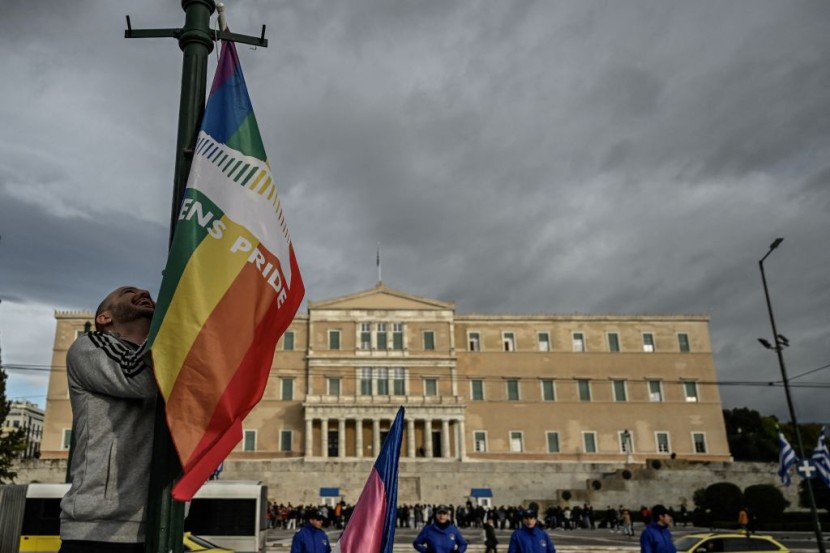In a historic move, Greece has become the first Orthodox Christian nation to legalize same-sex marriage, marking a significant victory for human rights in the country.
The legislation not only allows same-sex couples to exchange vows in civil ceremonies but also grants them the right to adopt children, a move hailed as a step towards equality and social progress.

Following a heated parliamentary debate, the historic ruling was reached, with 176 out of 300 lawmakers endorsing the bill. The legislation was crafted by the center-right government helmed by Prime Minister Kyriakos Mitsotakis.
"This is a milestone for human rights, reflecting today's Greece - a progressive, and democratic country, passionately committed to European values," stated Prime Minister Kyriakos Mitsotakis in a post following the vote.
However, the decision has divided Greek society, with strong opposition coming from conservative quarters, particularly the influential Greek Orthodox Church. Church officials have voiced concerns about the bill's implications for traditional family values and have threatened to excommunicate lawmakers who supported the measure.
Supporters of the legislation, waving rainbow banners, celebrated the historic moment, while opponents, including conservative groups and far-right parties denounced the law as "sick" and claimed it would lead to moral decay.
Far-right lawmaker Vassilis Stigas, leader of the minor Spartans party, labeled the legislation as "sick" and asserted that its adoption would "open the gates of Hell and perversion."
Former Prime Minister Antonis Samaras echoed the opposition, stating on Thursday that same-sex marriage was not a human right and the "dangerous" law should not have been introduced.
Despite facing resistance, Prime Minister Mitsotakis championed the bill, emphasizing its role in ending inequality and ensuring full parental rights for same-sex couples. He argued that the reform aligns Greece with other European countries that have already legalized same-sex marriage, emphasizing the country's commitment to modernity and equality.
"The reform that we are legislating today ... will make the life of some of our fellow citizens that much better without - and I emphasise this - taking away anything from the lives of the many," Mitsotakis stated.
The influence of the Greek Orthodox Church, which has traditionally held significant sway over social and political matters in Greece, has been a key factor in the debate surrounding the legalization of same-sex marriage.
Nonetheless, many view the passage of the bill as a significant step forward for LGBTQ+ rights in Greece and signals the country's growing commitment to human rights and equality.
Read Also : Ohio Senate Overrides Veto of Restricting Transgender Care, Women's Sports Participation
LGBTQ+ Community Celebrates Historic Victory
As Greece joins the ranks of European nations that have embraced marriage equality, activists and LGBTQ+ individuals across the country celebrate a hard-fought victory and a new chapter in their quest for acceptance and recognition.
Greece's LGBTQ+ community, in particular, has expressed relief and joy at the prospect of being recognized as equal citizens under the law.
Stella Belia, the head of same-sex parents' group Rainbow Families, described the legislation as a "long-awaited moment of validation" for LGBTQ+ individuals who have long struggled for acceptance and recognition in Greek society.
"We have waited years for this," expressed Belia. "It's a historic moment. A lot of us weren't sure it would ever come."
The enactment aligns the nation with 20 other European countries and bolsters its human rights profile in anticipation of forthcoming European elections.
At present, fifteen out of the twenty-seven European Union members have legalized same-sex marriage. Internationally, this recognition is extended to thirty-five countries.
© 2025 HNGN, All rights reserved. Do not reproduce without permission.








